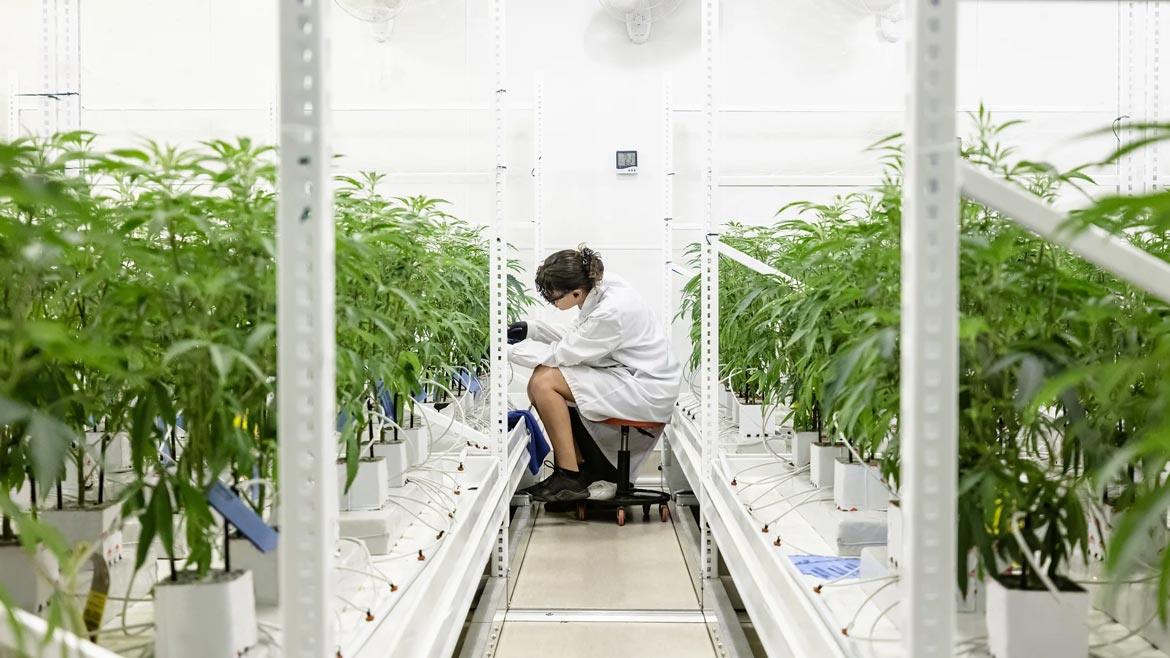The cannabis industry is experiencing exponential growth as more regions legalize its use for both medicinal and recreational purposes. This expanding market presents unique opportunities but also comes with unique challenges in the realms of security and compliance.
Compliance and security in the cannabis industry, while closely related, address different aspects of operational integrity. Compliance focuses on adhering to local and state regulations to ensure legal and safe production and distribution, whereas security involves protecting the physical and digital assets of the business (including inventory, cash and personnel) from theft, diversion and cyber threats.
Unique security challenges
Gone are the days of carrying backpacks full of cash to pay licensing fees and other obligations (yes, that really happened), but safety concerns surrounding cash transactions, product transport, and foremost, the safety of staff, remain paramount.
- High-value inventory: Cannabis products, both in raw and processed forms, are highly valuable, not just monetarily, but also from a possession perspective. Carry limits are in place so that no one individual has access or control of large amounts of inventory with the intent to sell to minors or undeveloped markets. This makes them attractive targets for theft and diversion to be distributed in what is called the “gray” market.
- Cash-intensive operations: Most operators have access to a bank of some sort for their business, but most transactions with consumers take place with cash. This means that security measures must be in place for handling and storing large amounts of cash.
- Employee safety: Cannabis businesses are subject to stringent regulatory oversight. These measures have laid the foundation to ensure necessary protocols are in place to protect employees from a variety of pitfalls or situations that exist as they work with cannabis and cash.
- Stringent oversight: Regulatory oversight has laid the foundation to ensure compliance and security protocols are in place. While some security measures may seem extreme, such as checking in every person who is accessing limited access facilities, escorting visitors, transport safety measures and more cameras than you can count, they are all necessary when working in the cannabis space.
Implementing robust security measures
To address these challenges, cannabis businesses must implement comprehensive security strategies. Key components include physical security, employee training and cybersecurity.
Physical security encompasses surveillance systems, secure storage facilities, and stringent access controls. High-resolution cameras, alarm systems and reinforced vaults are essential to safeguard valuable inventory and cash reserves.
Additional safety measures come into play, even when hiring cannabis employees. Each state has its one set of rules for who can work in cannabis, but strict and repetitive background screens take place for every employee before someone can be trusted to work in cannabis. This helps weed out the bad actors.
Employee training is equally important. Employees must be trained to recognize and respond to security threats. This includes understanding protocols for handling cash, managing inventory and ensuring the integrity of the supply chain. Regular training sessions ensure that all staff are up-to-date on the latest security practices and are equipped to handle potential threats.
In 2024, cybersecurity cannot be overlooked — or overstated. As with any modern business, cannabis companies must protect their digital assets along with environmental control systems that live in the cloud. This involves safeguarding customer data, securing online transactions and preventing cyberattacks or hacking into system databases.
The importance of compliance
Compliance in the cannabis industry is multifaceted, involving local and state rules. Key areas of focus include:
Licensing: Obtaining and maintaining the necessary licenses is fundamental to operating a legal cannabis business. This process can be complex and requires meticulous attention to detail. Businesses must navigate an evolving regulatory landscape, submit comprehensive documentation and often undergo rigorous inspections. The cost of non-compliance can be severe, including hefty fines, license suspension or permanent closure.
Product testing and labeling: Product testing and labeling are critical components of compliance. Cannabis products must meet stringent safety standards to ensure they are free from contaminants such as pesticides, heavy metals and microbial impurities. Accurate labeling is equally important, providing consumers with essential information about the product's potency, ingredients and usage instructions. This transparency helps build consumer trust and ensures safety for products that hit the store shelves.
Record-keeping: Detailed records must be kept for all aspects of the business, from seed to sale. Traceability and accountability become paramount when a product is recalled or needs to be investigated for product safety.
Building a company culture of compliance
Creating a culture within a cannabis organization requires commitment from all levels of the business. Compliance and security are everyone's jobs! Senior management must lead by example, while all employees need to embrace the importance of compliance. Regular training sessions and clear communication of policies are essential. Additionally, this is not a one-time effort but an ongoing process. Businesses must stay abreast of changing regulations and continuously refine their practices — rules can change overnight to be implemented the next day.
Partnering with experts
Given the complexities of security and compliance, partnering with experts can be invaluable. Security consultants, legal advisors and compliance specialists can provide the insights and support needed to navigate the regulatory landscape and implement effective security measures.
The cannabis industry is at a critical juncture, with enormous potential for growth and innovation. However, the risks associated with security and compliance should not be underestimated. The adage “You're only as strong as your weakest link” is particularly relevant in the cannabis industry. It is critical to build a company-wide culture of compliance and security, ensuring that every member of the organization is aware of their role in maintaining these standards. By prioritizing these aspects, businesses can not only protect their assets and reputation but also build a foundation for long-term success.







